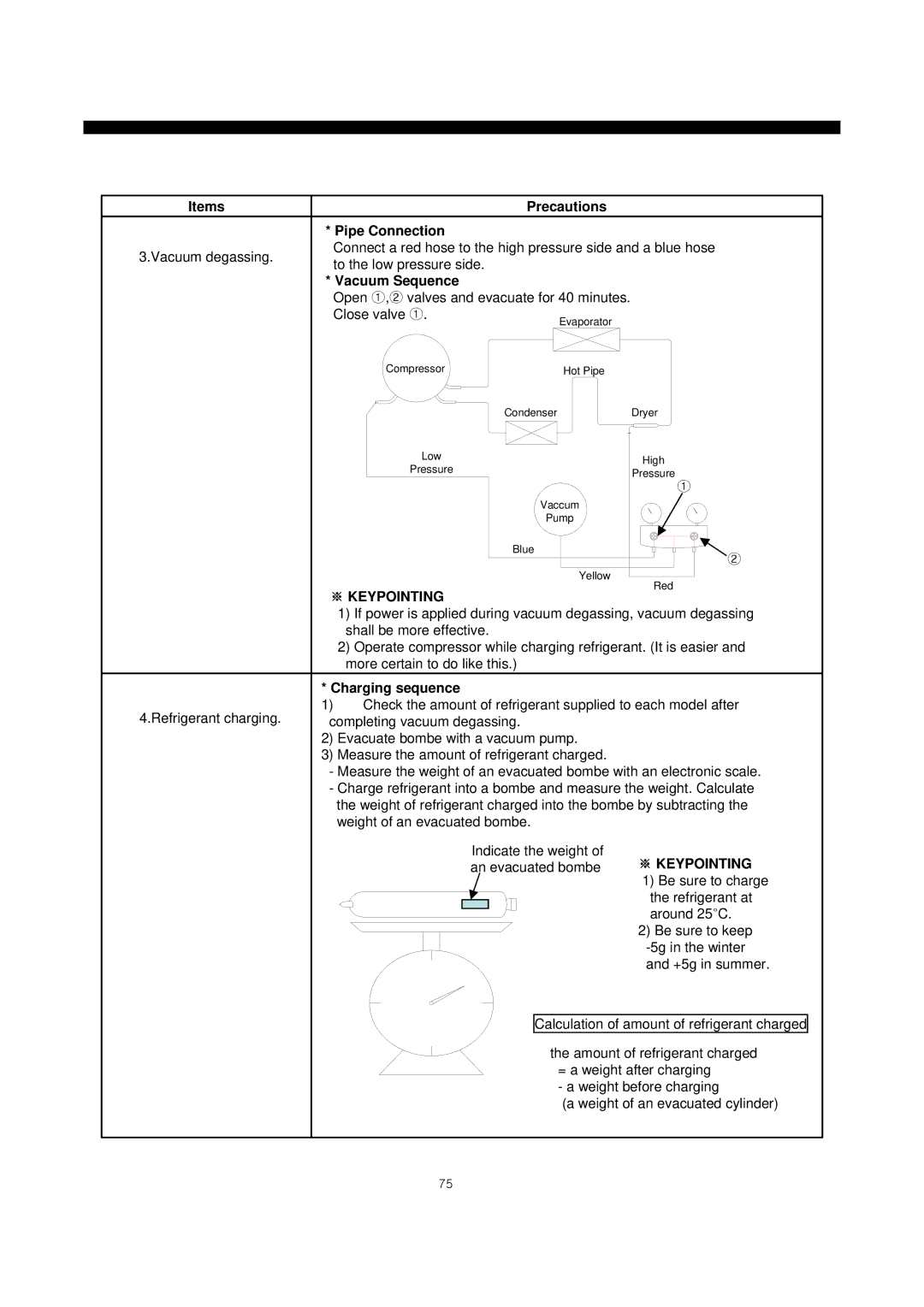
Items |
| Precautions |
|
| * Pipe Connection |
|
|
3.Vacuum degassing. | Connect a red hose to the high pressure side and a blue hose | ||
to the low pressure side. |
|
| |
|
|
| |
| * Vacuum Sequence |
|
|
| Open ①,② valves and evacuate for 40 minutes. |
| |
| Close valve ①. | Evaporator |
|
|
|
| |
| Compressor | Hot Pipe |
|
|
| Condenser | Dryer |
| Low |
| High |
| Pressure |
| |
|
| Pressure | |
|
|
| |
|
|
| ① |
|
| Vaccum |
|
|
| Pump |
|
|
| Blue |
|
Yellow
②
※ KEYPOINTING
Red
1) If power is applied during vacuum degassing, vacuum degassing shall be more effective.
2) Operate compressor while charging refrigerant. (It is easier and more certain to do like this.)
* Charging sequence
4.Refrigerant charging. | 1) | Check the amount of refrigerant supplied to each model after | |||
completing vacuum degassing. |
| ||||
| 2) Evacuate bombe with a vacuum pump. |
| |||
| 3) Measure the amount of refrigerant charged. |
| |||
| - Measure the weight of an evacuated bombe with an electronic scale. | ||||
| - Charge refrigerant into a bombe and measure the weight. Calculate | ||||
|
| the weight of refrigerant charged into the bombe by subtracting the | |||
|
| weight of an evacuated bombe. |
| ||
|
|
| Indicate the weight of | ※ KEYPOINTING | |
|
|
| an evacuated bombe | ||
|
|
|
|
| 1) Be sure to charge |
|
|
|
|
| the refrigerant at |
|
|
|
|
| around 25°C. |
|
|
|
|
| |
|
|
|
|
| 2) Be sure to keep |
|
|
|
|
|
|
|
|
|
|
| and +5g in summer. |
Calculation of amount of refrigerant charged
the amount of refrigerant charged = a weight after charging
- a weight before charging
(a weight of an evacuated cylinder)
75
